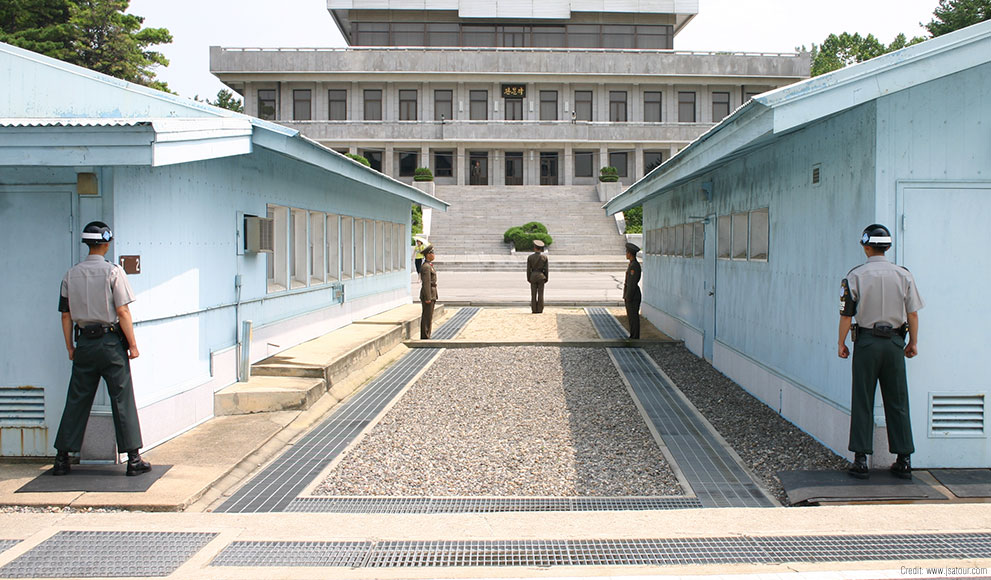International Media Call on Professor For Expertise After Bomb Test in North Korea

When North Korea recently claimed to have tested a hydrogen bomb, international news media turned to Katharine H.S. Moon, Edith Stix Wasserman Professor of Asian Studies and Professor of Political Science, for her insight on what this latest move could mean for the region and for international relations. Most recently, Moon, a widely sought after expert on the Koreas, spoke to NPR, penned a commentary for The Brookings Institute, was cited by Germany's Deutsche Welle, and appeared on BBC Chinese, among other media.
With NPR, Moon spoke about how nuclear testing in North Korea is affecting younger generations in neighboring South Korea. "The young people, they don't have a history of the Cold War and of communism and of the ideological fight," she said. "These are individuals who have grown up with multiple announcements and declarations about the North's threatening postures and programs. So in a way, they've become very familiar with this narrative."
In her commentary for the highly esteemed Brookings Institute, entitled "Why is North Korea pursuing hydrogen power?". Moon also shared her expert perspective on North Korea’s nuclear goals. Writing the day after North Korea's announcement it had tested a bomb, Moon wrote, "In pursuing the power of hydrogen, [North Korea] is forced to tell the naked truth that the nuclear program is indeed for military purposes." She added, "[E]ven if the explosion did not involve a real hydrogen bomb (something only the five original nuclear powers…possess for certain), Pyongyang's [the capital] nuclear ambitions were fully on display."
Later in the Brookings piece Moon analyzed possible motivations. "North Korea wants to make sure that the United States will not treat it like another Libya or Iraq, but the reality is that Washington is already careful because of the country’s small but credible nuclear capability and infrastructure," she said. "Hydrogen bombs can do more damage per detonation, but they would not alter significantly the credibility of North Korea's deterrence capability." In her final analysis, however, she wrote that the provocative nuclear move may have been saber rattling meant for neighboring China rather than the United States. The January 6 test, she arguged, “was more of a slap to Beijing's face than a violent dance to get the attention of Washington."
Despite media narratives that often simplify the politics surrounding what is often considered a rogue nation, Moon explained where she thinks U.S. policy must head. "Of course, no sane official believes we can talk and work with caricatures and cartoon characters [as North Korea is often represented]," she said. "But this is where U.S. policy must change: We need to stop waiting for China to hold North Korea's hand and guide it toward normalcy and peace. We need to pull up chairs with North Koreans, draw up a common agenda, and directly negotiate with them. We want them to stop and eliminate their nuclear program, and they want to feel they are not a target of destruction or damage by the U.S. Direct negotiations are not a 'reward' for North Korea's aggressive behavior; it's the start of changing North Korea's behavior."
In addition to her position at Wellesley, Moon is the inaugural holder of the SK-Korea Foundation Chair in Korea Studies and senior fellow at the Brookings Center for East Asia Policy Studies.
